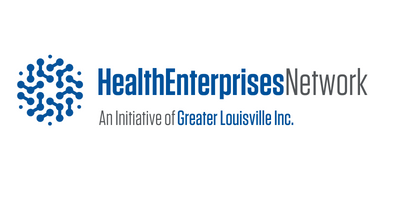Louisville has a problem with loneliness, which local healthcare companies are determined to do something about. The state of Kentucky ranks 48 out of 50 US states in terms of social isolation, a situation only made worse by Covid-19. But 12 local healthcare companies spanning the healthcare continuum and accounting for $100bn of revenue, have created a charitable organization to share expertise, pool data and co-ordinate patient care.
Tammy York Day, chief executive of the Louisville Healthcare CEO Council, explains that member companies have built an “innovation engine” to spot correlations between loneliness indicators and reduced medication use, triggering targeted interventions. They are also working with Famileo, a French start-up, to help family members produce weekly, personalized digital newspapers that are then printed out and delivered to the elderly.
“The system is currently set up to fail because there is no alignment of incentives. It is a question of realigning those incentives,” she says. “We need a data-driven evidence base that if you invest in these interventions you will produce this return on your investment.”
The Louisville initiative highlights the possibilities of using data to improve patientcare and reduce costs. But all too often this data is siloed among doctors, electronic healthcare record companies, healthcare providers and insurers.
The hardest of all forms of innovation is the systemic kind. And healthcare is arguably the toughest systemic challenge of all: a complex mesh of human inspiration and emotion, of life and death, of misaligned incentives and vested interests. Yet theCovid-19 emergency, which has exposed the stresses and strains in many systems as never before, may prove to be a pivotal moment for healthcare for four reasons.
First, the pandemic has shown that healthcare employees can respond with astonishing speed, flexibility and courage when the need is acute enough. New medical facilities have opened. The use of telemedicine has rocketed. Vaccines have been developed. The crisis has accelerated the metabolism of change.
Second, government efforts to digitize healthcare and force records providers to guarantee greater interoperability of their systems is likely to gather even more momentum. The big companies, such as Epic,
have in the past resisted making their data shareable, cloaking commercial self-interest in privacy concerns. But the US, EU, India and China are now pressing them to standardize their systems and safely open up access to data to the potential benefit of patients, physicians and researchers.
Third, companies are investing heavily in new ways of using this information and generating other sources of complementary data. Big Tech companies — including Amazon, Google, Apple and Alibaba — are expanding into pharmacies, diagnostics, wearables and insurance. Venture capital money is also pouring into digital health start-ups, a record $8.4bn in the third quarter of this year, says research firm CBInsights.
Fourth, there is a growing realization that healthcare professionals, policymakers and tech companies have to work hand in hand if the system is to improve. Leave too much power with healthcare administrators and little is likely to change. Cede too much power to tech companies and they are likely to foist inappropriate solutions on unwitting healthcare officials.
While data holds out enormous promise, itsuse in healthcare raises obvious concerns. We do not want Big Tech companies controlling even more aspects of our lives; we do not want sensitive healthcare data to be compromised. Policymakers must set a regulatory framework and police the rules.
Alex Turkeltaub, managing partner of investment firm JSL Health Capital, draws a comparison with the history of the Saudi Arabian oil industry to illustrate the possible evolution of the health data sector. First, the Saudis encouraged private US oil companies to develop the industry. Then, they figured out that oil was the indispensable asset and that technological expertise was a commodity. They therefore nationalized the industry and put tenders out to contract.
So, Mr Turkeltaub suggests, healthcare systems are realizing the enormous value of their data. But that data only has value if it is safely extracted and refined. “If we use data well, we can dramatically improve outcomes, especially for the poor. Most people do not die of fancy diseases but of common complaints,” he says.
Crises often destroy old habits and create new ones. Learning how to use data more smartly would be a good habit to acquire.
JOHN THORNHILL of the Financial Times

Recent Comments